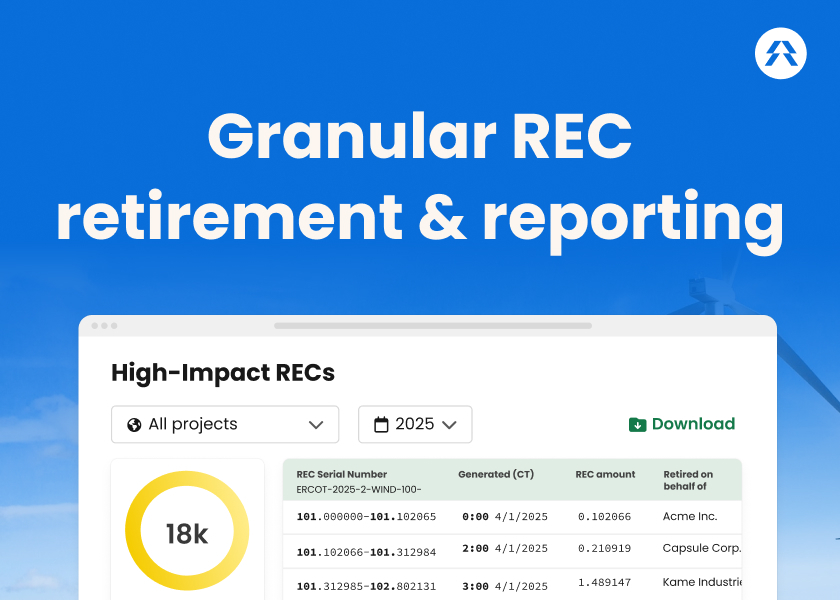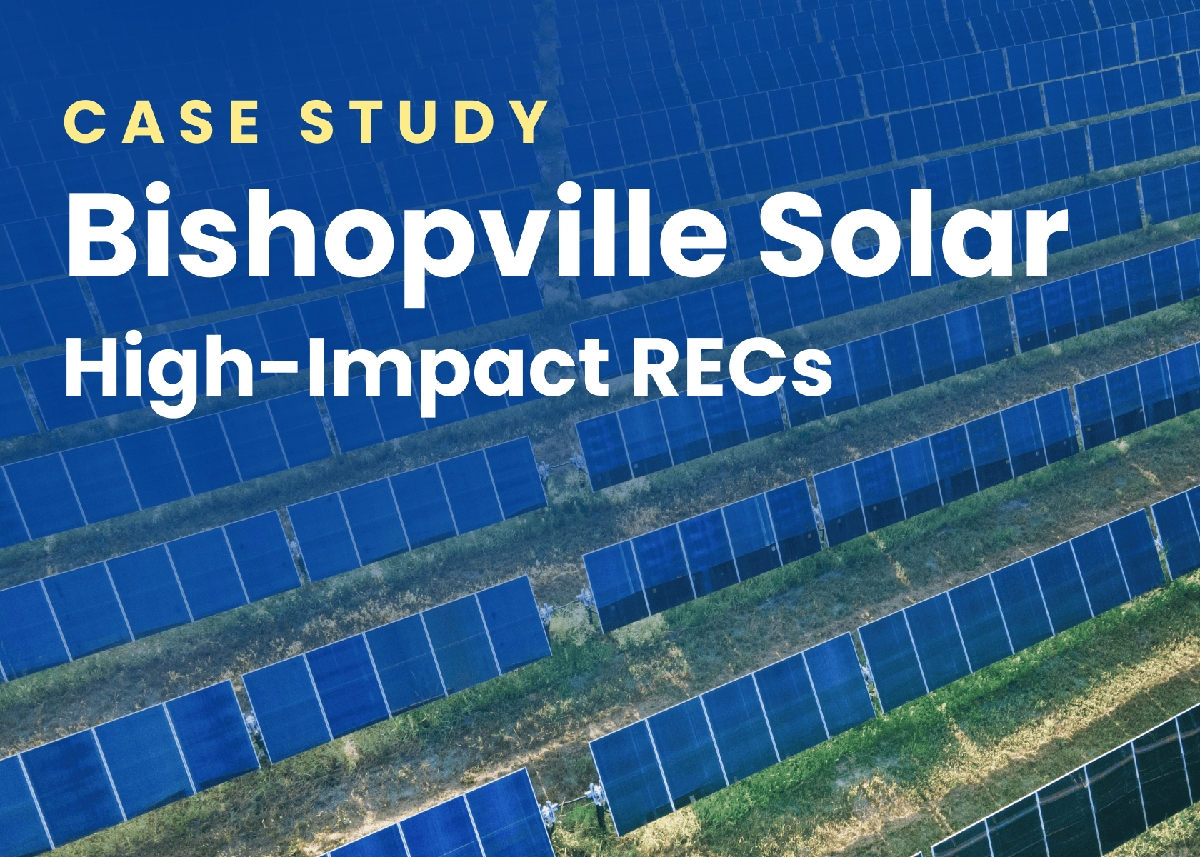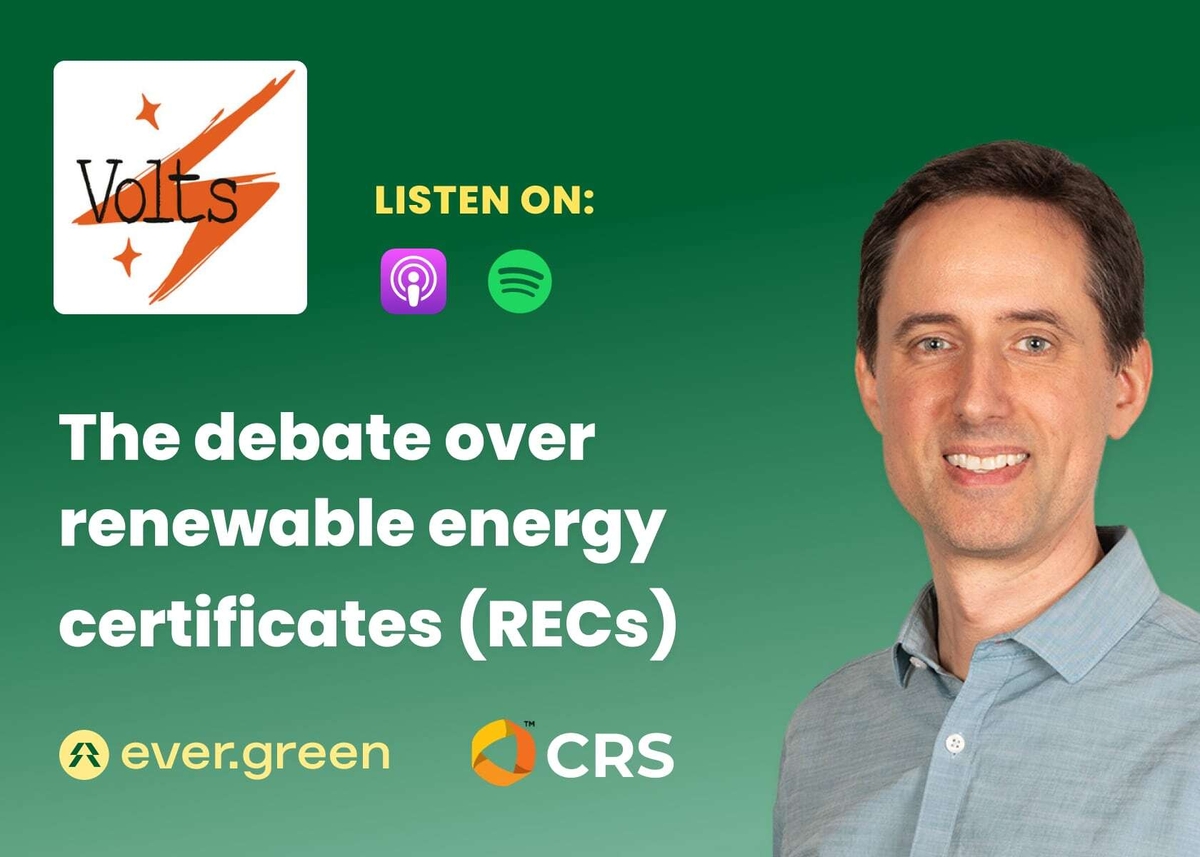The Future of Voluntary Clean Energy Standards Is Being Decided — Let’s Get It Right
Rethinking Scope 2 Accounting Standards
Apr 7, 2025
Over the past 15 years, corporate voluntary action has played a pivotal role in accelerating the clean energy transition through high-impact actions like Power Purchase Agreements (PPAs) that have enabled over 200 gigawatts of additional capacity. But not all voluntary renewable energy purchases are created equal—some clearly accelerate the transition, while others have questionable impact on how fast we move toward a clean energy future.
Now, the standards that shape corporate carbon accounting are being rewritten, and the early indication of where they’re headed is concerning. Instead of changes that improve the voluntary market’s ability to drive new clean energy, some proposed standards could do the opposite—adding cost and complexity while reducing both impact and participation.
Getting this right is critical. The standards in question will influence the climate action strategies of hundreds of thousands of companies worldwide. The choices made today will determine whether voluntary markets drive even more progress or become a bureaucratic hurdle that slows us down.
The Debate: What Should These Rules Really Do?
At the heart of this discussion is a fundamental question: What should voluntary market standards be designed to achieve?
We believe scope 2 accounting guidelines must balance accuracy, impact, and accessibility, ensuring that changes drive meaningful decarbonization without crippling participation.
- Accuracy: Do the calculations, reports, and claims about scope 2 emissions and targets more accurately represent what is happening in the physical world?
- Impact: Does setting and meeting scope 2 targets result in more projects being built, thus resulting in the acceleration of the transition to clean energy?
- Accessibility: Finally, do the rules and standards at least allow for the majority of the current market to participate and benefit from efforts to set and meet scope 2 targets?
Unfortunately, some influential stakeholders are pushing for stricter frameworks, such as 24/7 carbon-free electricity and rigid local procurement requirements. While these approaches may work for a handful of highly resourced companies, they could diminish participation across the broader market—limiting the ability of voluntary action to actually drive new clean energy investment.
For example, forcing companies to procure locally could have unintended consequences, such as requiring them to buy solar in an already oversupplied region instead of supporting new projects where they’re needed most. Alternatively, imagine a company with operations across ten states. Under current flexible models, they could pool demand and support a single new solar project that adds meaningful capacity to the grid. But with stricter matching requirements, they’d likely end up piecing together smaller purchases from already-built projects. The compliance box might be checked, but meaningful emissions reductions are left on the table
A Smarter Path Forward
We believe voluntary markets should be designed to maximize real-world decarbonization while keeping participation broad and accessible. We’ve taken our deep understanding of voluntary markets, project development, and clean energy finance to construct a better path forward—one that improves both the impact and accuracy of how companies set and meet renewable energy targets.
In our proposal, we advocate for voluntary market standards that reflect these values.
- Acknowledge we’re still early in the clean energy transition, and therefore we should continue building more new capacity as quickly as possible before fine-tuning hourly and location matching.
- Reward investments that directly lead to more new clean energy projects.
- Maintain flexible procurement options that allow broad participation and incentivize ambitious action.
We believe this approach brings together the best of what works today with new concepts that improve both credibility and effectiveness. The result? Stronger standards that drive more impact—not more red tape.
📄 Read the proposal to see how we might shape voluntary market standards for the future.






